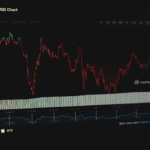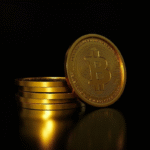The financial landscape is witnessing a profound transformation with the advent of tokenized securities, leveraging blockchain technology to disrupt and redefine traditional markets. These digital assets represent ownership rights to real-world assets, including equities, bonds, and real estate, but with the added efficiency, transparency, and accessibility that blockchain offers.

Understanding Tokenized Securities
Tokenized securities are created by issuing digital tokens on a blockchain network, each representing a fractional ownership stake in the underlying asset. For instance, a high-value property can be divided into numerous digital tokens, enabling investors to buy and sell fractions of the asset with ease. This fractional ownership model democratizes access to investments that were previously limited to institutional investors or high-net-worth individuals.
Benefits of Tokenized Securities
Fractional Ownership: By breaking down assets into smaller units, tokenized securities enable broader participation in investment opportunities, fostering financial inclusion and diversity in portfolios.
Liquidity: Traditional securities often suffer from illiquidity, with assets tied up for extended periods. In contrast, tokenized securities can be traded peer-to-peer on digital asset exchanges, enhancing liquidity and reducing the time and cost associated with transactions.
Transparency and Security: Blockchain’s immutable ledger ensures transparent and auditable records of ownership and transactions. This transparency builds trust among investors and reduces the risk of fraud or manipulation.
Automation with Smart Contracts: Smart contracts, which are self-executing agreements with their terms embedded in code, automate many aspects of securities trading. These include dividend distributions, shareholder voting, compliance checks, streamlining processes, and reducing administrative overhead.
Challenges and Considerations
Regulatory Compliance: Regulatory uncertainty remains a significant hurdle for tokenized securities as regulators grapple with applying existing securities laws to blockchain-based assets. Navigating this evolving regulatory landscape requires careful legal analysis and compliance measures.
Technical Challenges: Scalability, interoperability, and security are technical challenges that must be addressed for the widespread adoption of tokenized securities. Blockchain networks need to support high transaction volumes while ensuring interoperability between different platforms and maintaining robust security protocols.
The Role of Digital Asset Consulting Firms
Digital asset consulting firms play a pivotal role in guiding businesses through the complexities of tokenized securities. Their expertise in regulatory compliance, strategic planning, and technology implementation helps issuers and investors navigate the landscape with confidence. These firms offer tailored solutions, including legal advice, tokenization strategies, and platform development, to optimize the benefits of tokenized securities.
Tokenized securities represent a paradigm shift in the financial industry, offering unparalleled efficiency, transparency, and accessibility. As blockchain technology continues to mature and regulatory frameworks evolve, tokenized securities are poised to reshape traditional financial markets, democratize investment opportunities, and drive innovation in the global economy. Embracing this transformative trend requires collaboration, innovation, and a forward-thinking approach to finance. Having the services of experts at Kenson Investments can make a huge difference. Work with us.














